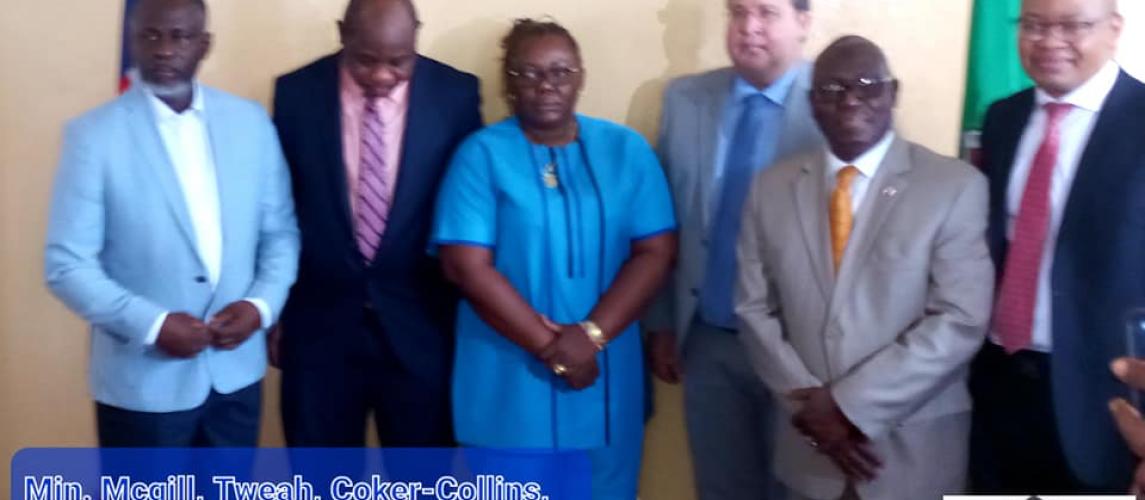
Government of Liberia Bags US 40M through World Bank's IDA Finacing and Additional 10M Euros from the French Development Agency -A major boost towards the Liberia Urban Resilience Project
MONROVIA, LIBERIA - The Premises of the Ministry of Public Works in Central Monrovia were electrifying on early Tuesday morning, May 31, 2022 as an array of Government Officials and Representatives from the World Bank were convened in a Signing Ceremony for what is deemed the launch of a landmark project: The Liberia Urban Resilience Project.
The Project is jointly funded through the World Bank’s IDA Financing Facility amounting to US40M and the French Development Agency also providing EURO 10M for the implementation of the project.
The Project, amongst many things, is expected to be implemented in parallel with both funding provided through the setting up of a Project Management Unit ( PMU ) to be managed by the Ministry of Public Works.
Making special remark, Finance and Development Planning Minister, Samuel Tweah lauded the World Bank for the strong partnership, noting that the Liberia Urban Resilience Project seeks to integrate various networks of Public Sector Actors across the country's major municipalities aimed at addressing drainage and related waste management challenges.
The Liberian Finance Minister extolled the concerted efforts of various Stakeholders and Donor Partners including the African Development Bank for the massive support given the Government of Liberia, emphasizing that the Pro-Poor Agenda for Prosperity and Development will continue to have socio-economic returns on the citizens of Liberia.
For his part, World Bank Country Direector Pierre Frank Laporte reaffirmed the Bank’s commitment to Liberia's national development goals, mainly in the areas of infrastructure.
Also speaking, Public Works Minister-Designate, Ruth Coker-Collins said the Liberia Urban Resilience Project was birthed as a result of a request by His Execllency President George Manneh Weah in support of a program that would eventually impact the lives of ordinary Liberians.
According to her, postwar Liberia has faced a major challenge due to inadequate spatial planning and land use strategy which largely account for high rural urban migration and the lack of adequate programs for proper land use.
The Project is expected to last for a period of six years with components of institutional strengthening.
